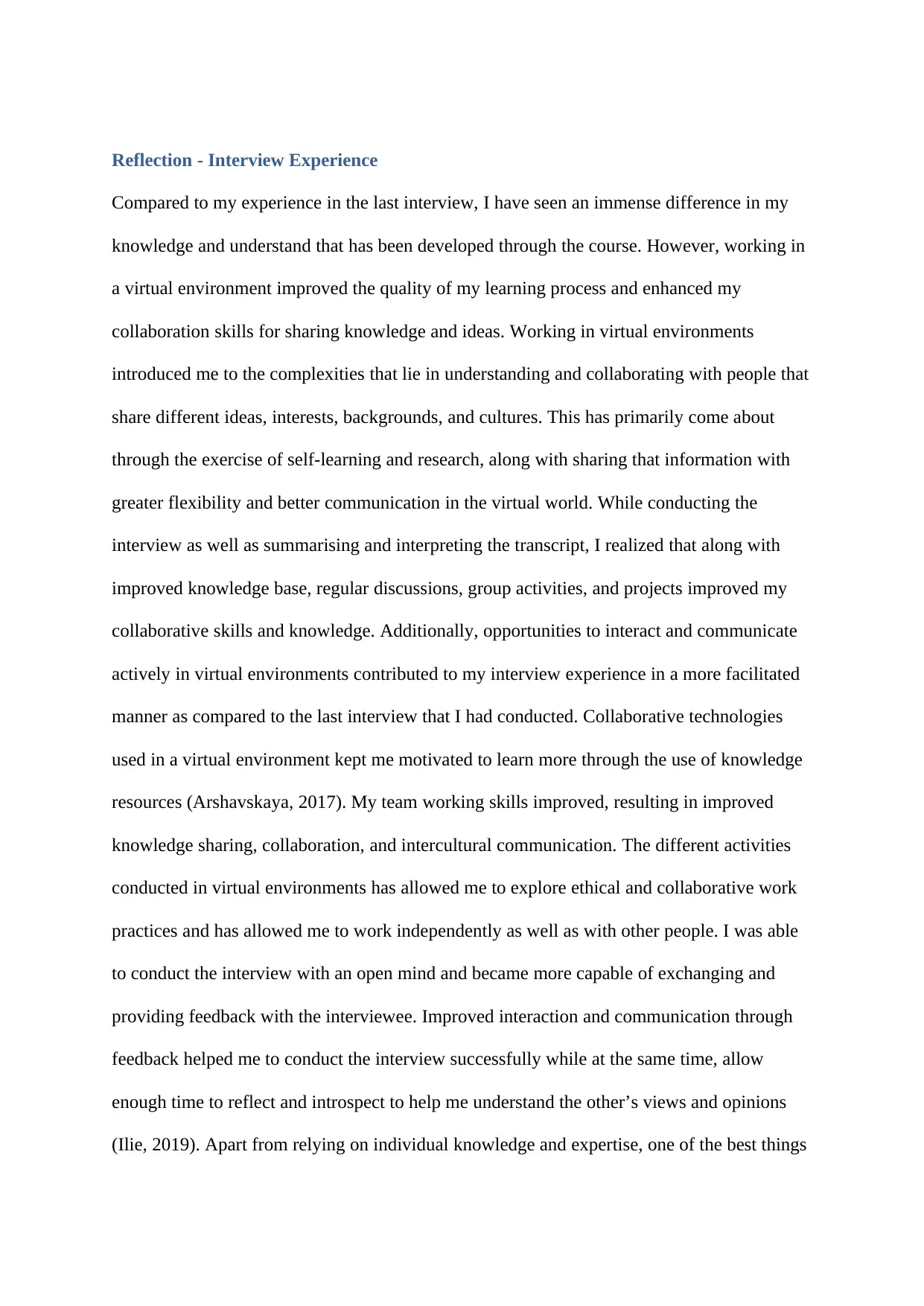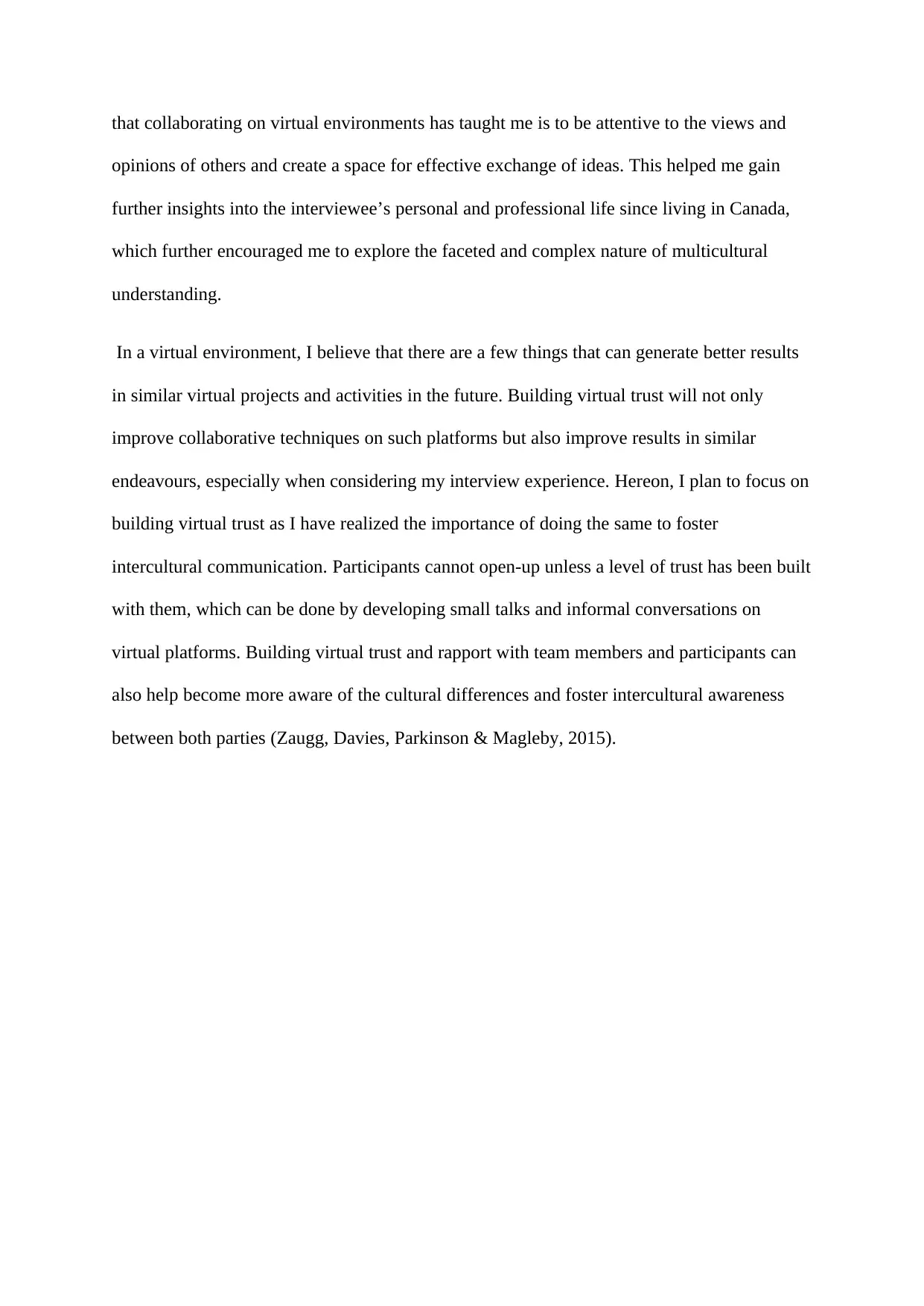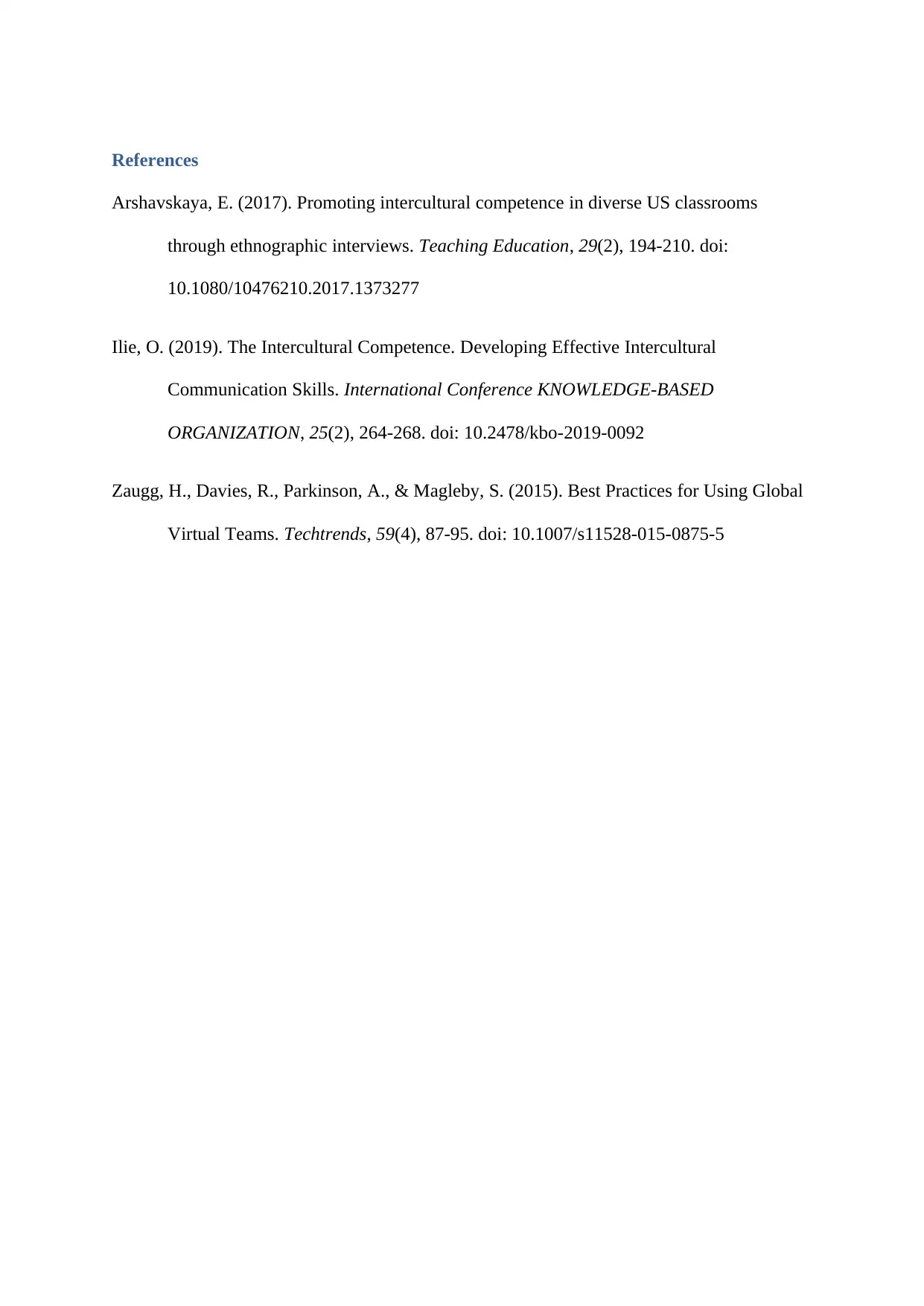Reflection: Interview Experience and Enhanced Collaboration Skills
VerifiedAdded on 2022/10/03
|3
|654
|453
Report
AI Summary
This report is a reflection on an interview experience, focusing on the development of skills and knowledge gained through a course, particularly within a virtual environment. The author highlights the immense difference in their knowledge and understanding compared to a previous interview, attributing this growth to self-learning, research, and improved communication and collaboration skills fostered by virtual settings. The report emphasizes the complexities of intercultural communication, improved team working, and the importance of building virtual trust to foster intercultural awareness. The author also discusses the benefits of regular discussions, group activities, and projects in enhancing collaborative skills. The author concludes by emphasizing the importance of building virtual trust to improve intercultural communication and collaborative techniques in future projects. The report also references academic sources to support the author's observations.
1 out of 3








![[object Object]](/_next/static/media/star-bottom.7253800d.svg)